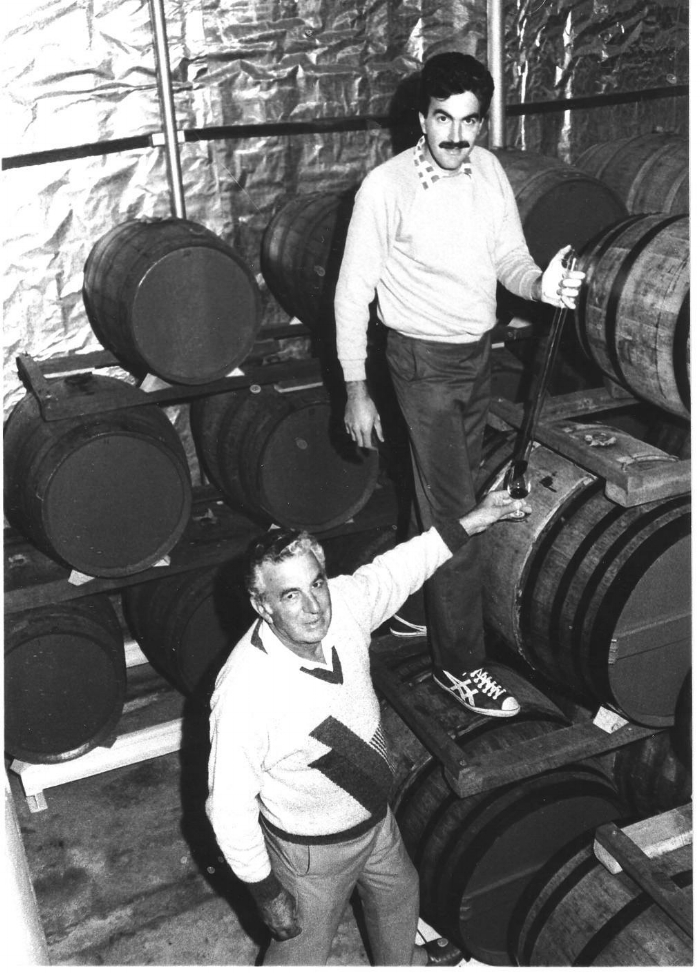That debate. Screw cap or cork?
There is no question about one thing. There is a percentage of the industry that has put everything into screw cap closures and another portion that believe screw cap only plays a small role, with cork still very much as important as it ever was. Maybe a smaller group are sitting back, needing more time. And of course there are still some wine drinkers that need to be convinced.
It’s quite interesting, because the largest manufacturer of these metal caps is a French company, but the French producers are the smallest users. At the other end of the world- literally- is New Zealand. The majority of wineries there have made the conversion. This may seem all very well for a young Sauvignon Blanc that will be consumed within 3-5 years at most, but what about ageing wines?
Well, we have our own wine as evidence- albeit a small localised sample. In the past 12 months some of the museum stock was made available for purchase and tasting. There is no doubt in our minds and to customers that the 2003 and 2006 Verdelhos, 2002 Semillon and 2003 Viognier were in perfect condition with well developed flavours and the trademark oily texture of an aged white. The Verdelho especially will age for at least another 5-8 years. The real difference was in the fact that not a single bottle had spoiled - or “corked” as we used to say. By comparison, a 16 year old Semillon blend (Voices- for those who remember it!) under cork that was available a couple of years ago had a relatively high rate of spoilage- around 5-7% of the bottles. This is a lot of waste that we are ultimately not getting from wine being under screw caps.
However, with full bodied premium reds, there are a number of winemakers edging back to cork. They feel that the slightly clinical approach from the screw cap doesn’t allow the wines to express themselves fully. I feel there is some truth to that. Though weighing up the consistency of screw caps to the possible inconsistency of even the most expensive cork may continue to sway many. I have continued to use the cork stopper cap on the fortified wines, not because the wine will develop any further, but because an old liqueur deserves some element of tradition.
Finally consumers- this is the final frontier and will determine what many commercial wineries end up changing to, or staying with. Something that comes up fairly regularly in a tasting- and usually from European visitors- is that they are unable able to find any high quality wines here. Those who drink French and Spanish wines are under the impression that a good quality wine is under cork, and that screw caps are for the more mass produced, lower quality ones. Visitors are not prepared to try many wines as this wasn’t the grand experience they were looking for or had heard about from Australian wine. It’s understandable then that a winemaker will choose to continue to use cork as a symbol of quality and prestige- but where does that leave the rest of us? Well, it involves more education, more wine tasting, and more people cellaring their own wines under screw cap and then sharing it with their friends in years to come. We can all make this small contribution - tough as it may be.
I’m also aware as a winemaker that cracking a screw cap does not have the same sense of occasion as the satisfying pop of a perfectly removed cork. However, I also know the frustration of removing a crumbling or moldy cork and hoping that the wine inside is drinkable.
When you also consider that 95% of wine purchased in Australia is consumed with 48 hours- why waste cork? There is no question the screw cap has well and truly proven itself, and it’s here to stay. There are many of my colleagues who would never entertain using cork again.
There is no doubt the debate will continue.
James T.



